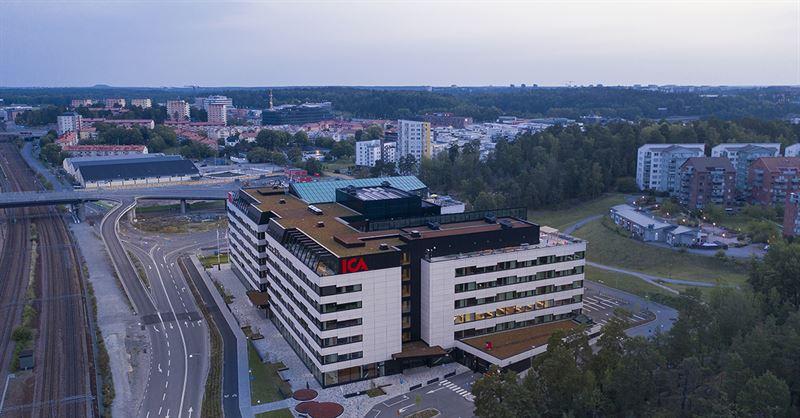Fabege first in the Nordics to secure a green EU taxonomy loan with Handelsbanken

Fabege was the first Swedish real estate company to exclusively use green financing. Now the company, together with Handelsbanken, is taking the next step and signing a EU Taxonomy adapted loan for a modern and climate efficient office building in Solna, outside Stockholm. Handelsbanken, in collaboration with its customers, wants to enable the rapid development of new financing products that comply with the EU Taxonomy.
Work on establishing the EU Taxonomy, a classification system for assessing the sustainability of economic activity, has been ongoing for several years and has now reached the legislative phase. On 4 June, the European Commission adopted a delegated act to establish the technical screening criteria, which determines if an economic activity is considered to contribute significantly to climate change mitigation and not cause significant damage to any of the other environmental objectives established in the Taxonomy Regulation. Based on this, Handelsbanken has entered into its first Taxonomy green loan. To enter into force the delegated act must also be adopted by the European Council and the European Parliament within four months.
"The EU Taxonomy and related legislation classify economic activities and introduce new requirements and opportunities in non-financial reporting and EU green financing. Through these legislative measures, which affect investors, companies and financial institutions, the Commission aims for a swift transformation of the market. In the next twelve months we will see a rapidly increasing activity in green financing structures adapted to the EU Taxonomy", says Tobias Lindbergh, responsible for sustainable financing at Debt Capital Markets, Handelsbanken.
The real estate company Fabege was the first customer to be granted a green loan from Handelsbanken, and is now also the first to be granted a taxonomy green loan. The financing applies to the building Signalen 3 in Solna, a modern office property with low energy consumption, environmentally smart material choices and with an environmental certification from BREEAM-SE at the ‘excellent’ level.
To achieve the requirements for a taxonomy loan, Fabege has carried out a comprehensive analysis of possible risks to the property based on ongoing climate change, i.e. material physical climate risks, such as flooding, soil erosion, heat stress and severe weather phenomena. In addition, the property has been equipped with a building automation and control system and received an energy performance certificate at the ‘A’ level, whereby the latter had only been achieved by 1.2 per cent of office premises in Sweden by the end of 2020. To obtain an energy performance certificate at this level the building must be at least 50 per cent more energy efficient than the national regulatory requirement in Sweden for new buildings. The requirements for a EU Taxonomy green loan also include so-called minimum safeguards. This means that activities are conducted in accordance with the OECD Guidelines for Multinational Enterprises and the UN Guiding Principles on Business and Human Rights, including the International Labor Organization (ILO) Declaration on Fundamental Principles and Rights at Work, the eight core ILO conventions and the international framework for human rights.
“The financial world has a great opportunity to steer developments in a more climate-friendly direction, and as borrowers we have significant potential to contribute to this. Since Fabege achieved 100 per cent green financing last year, we are now taking the next step and extending our sustainability responsibility in financing via a taxonomy-linked loan. We’re delighted to be able to do this together with Handelsbanken, with its responsible approach to sustainability work,” says Åsa Lind, Head of Treasury at Fabege.
Facts
Sustainable financing means financing of projects and assets linked to environmental sustainability, social sustainability and corporate governance (ESG). To date, sustainable financing has primarily meant green or sustainability-linked loans, more specifically green loans that finance or refinance specific green projects, or sustainability-linked loans with requirements attached to achieve certain agreed sustainability-related results that are attributed to a company's operations.
The EU Taxonomy is a tool for classifying which investments are environmentally sustainable. The purpose is to ensure that the financial sector has common guidelines for which economic activities may be called "green". In order to be classified as green, an activity must make a significant contribution to one or more of the six established environmental goals, not cause significant harm to any of the other goals, and meet certain minimum social safeguards. At present, the focus is on the climate and environment, but the EU Taxonomy is expected to eventually be expanded to also cover social factors.


